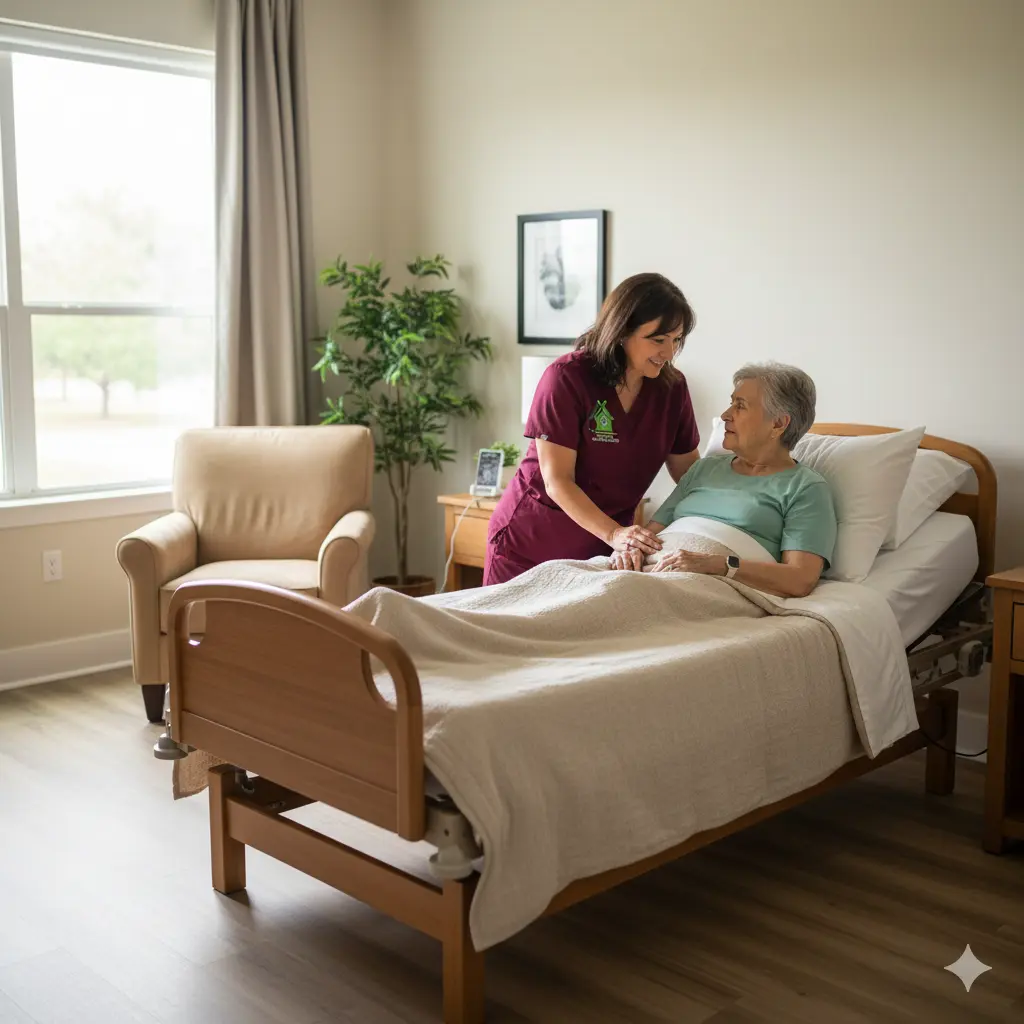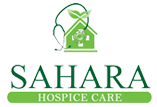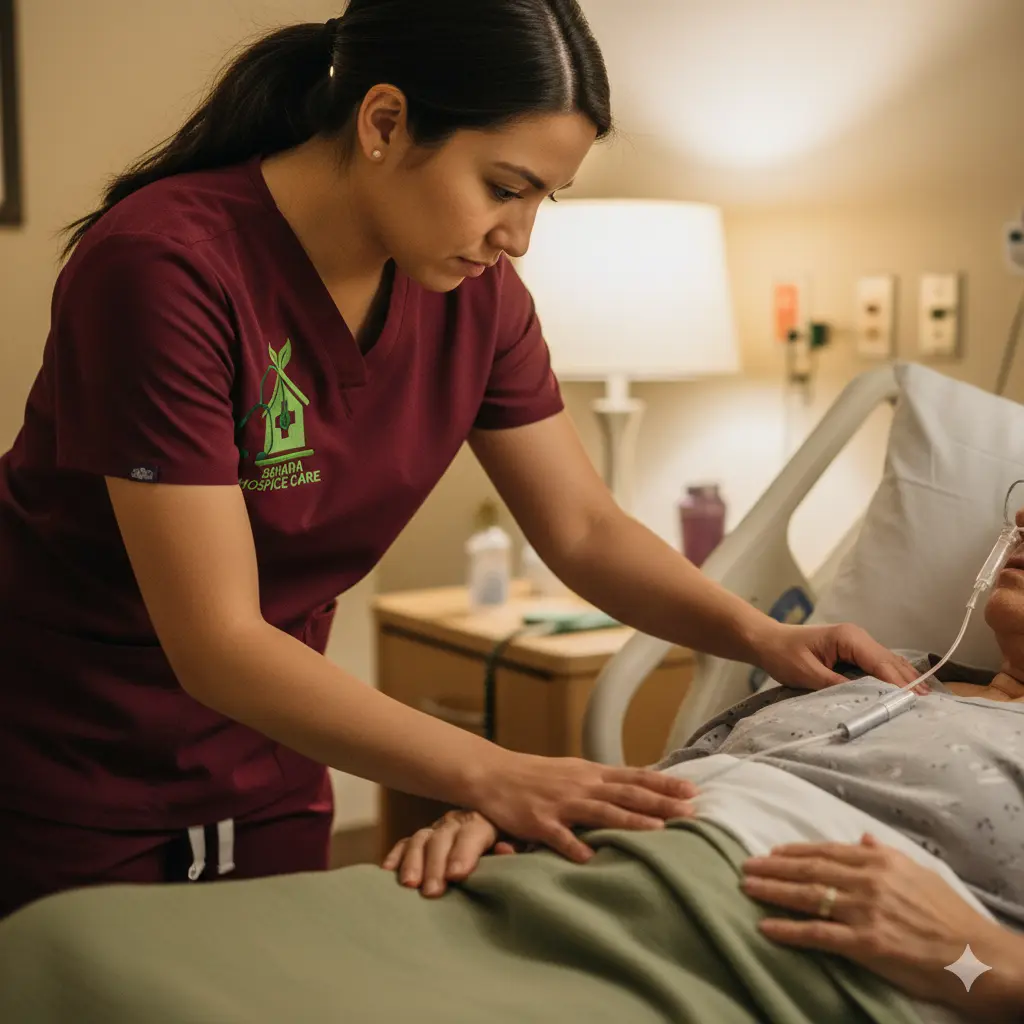In patient hospice: comfort-focused care when symptoms spike
By Alan Jacob, Medical Writer
In patient hospice delivers short-term, 24/7 medical support in a hospital or hospice unit when symptoms become too hard to manage at home. Families in Sugar Land, Houston, and surrounding areas can often start services within 24–48 hours. Moreover, our team plans a smooth transition back home as soon as symptoms stabilize.
Quick definition: In patient hospice is a short stay in a hospital or hospice facility for advanced illness when pain, breathing problems, agitation, or other symptoms require round-the-clock nursing and physician oversight. Once the team controls symptoms, most patients return home or to routine hospice care.
What is in patient hospice?
In patient hospice (also called general inpatient hospice or GIP) serves crisis periods. The goal focuses on comfort and safety, not cure. Accordingly, clinicians adjust medications, monitor symptoms closely, and guide the family throughout the stay.
Common reasons include uncontrolled pain, worsening shortness of breath, severe nausea or vomiting, terminal restlessness, or complex wounds. Typically, the stay lasts only a few days until symptoms improve.
When is inpatient hospice care right for your loved one?
- Symptoms don’t respond to home visits or phone triage.
- The situation requires rapid medication changes or IV therapies.
- Safety risks—such as falls or agitation—make home care unsafe.
- The caregiver feels exhausted and needs immediate relief.
- Your physician recommends close, continuous monitoring after an acute change.
What happens during an in patient hospice stay?
- Intensive symptom control: The team titrates medications for pain, breathlessness, anxiety, or delirium.
- Continuous nursing assessment: Nurses perform frequent checks, respond quickly, and prevent falls.
- Physician oversight: Doctors evaluate daily and issue rapid orders when needs change.
- Family support: We offer education, spiritual care, and social-work guidance for decisions.
- Plan for home: As soon as symptoms stabilize, we prepare a step-down to routine care.
For team roles and how we coordinate, explore our overview: About Sahara Hospice Care.
In patient hospice vs. home hospice
Both belong to the same benefit, yet each serves a different need. Home hospice centers on routine visits and caregiver support. By contrast, in patient hospice provides a brief, facility-based “reset” for rapid comfort. Consequently, many Sahara Hospice Care patients in Sugar Land, Houston, and surrounding areas move between levels as needs change.
If you want a deeper comparison, review these guides: What is in-home hospice care? and Where is hospice care provided?
Costs, coverage, and length of stay
Patients typically use Medicare, Medicaid, or private insurance. Importantly, Medicare covers in patient hospice when medically necessary, including medications and equipment related to the terminal diagnosis. Therefore, the length of stay depends on clinical need—not a fixed timeline—and ends once the team achieves symptom control.
For authoritative details, see Medicare.gov: Hospice care coverage. This page explains eligibility, coverage, and levels (including general inpatient care).
How Sahara Hospice Care supports your transition back home
- We reconcile medications and give clear dosing sheets.
- We arrange equipment and supplies to arrive at home before discharge.
- We schedule the first post-discharge visit and review the 24/7 number.
Mini case studies (realistic, de-identified)
Before: Mr. L., 78, advanced COPD, experienced severe breathlessness and panic overnight. Nebulizers at home offered minimal relief.
After (48 hours): Our team initiated IV steroids and low-dose morphine; his anxiety eased, oxygen stabilized, and he slept. He returned home on day 3 with a simplified inhaler plan and backup meds.
Before: Ms. R., 67, metastatic cancer, faced escalating pain and vomiting despite oral opioids. Her caregiver felt overwhelmed.
After (72 hours): We rotated to IV hydromorphone and started an antiemetic infusion. Vomiting stopped and pain came under control. She discharged home on day 4 with a rescue plan and nurse follow-up.
How to prepare for admission
- Bring a current medication list and allergy details.
- Pack comfortable clothes, glasses, hearing aids, and phone chargers.
- List recent changes—falls, new confusion, appetite—to speed evaluation.
- State your goals clearly: “Be comfortable enough to be home this weekend.”
- Discuss code status and any advance directives with your clinician.
Meanwhile, if you are still weighing home-based support, compare options here: What is in-home hospice care?
Local availability in Sugar Land & Houston
Sahara Hospice Care serves Sugar Land, Houston, and nearby communities. When symptoms escalate, our coordinators respond quickly and, when appropriate, arrange in patient hospice admission. In many cases, families begin services within 24–48 hours after eligibility is confirmed.
To understand our mission and team values, visit: About Sahara Hospice Care.
FAQs
Is in patient hospice only for the final days?
No. It supports short-term crisis management. Many patients return home once symptoms improve, often within a few days.
Who decides if in patient hospice is needed?
Your hospice physician and RN review symptoms with you. If needs exceed home support, they recommend the inpatient level.
Will Medicare cover the stay?
Yes, when criteria are met. Medicare covers the contracted unit, related medications, and clinical services.
How long can my loved one stay?
The stay lasts as long as symptoms require intensive management. When control returns, the team steps you down to routine care.
Can families stay overnight?
Usually, yes. Individual facilities set their own policies, and we encourage family presence.
What happens after discharge?
We provide a home plan, a follow-up schedule, and a 24/7 number. We also arrange equipment and medications in advance.
Does in patient hospice mean giving up?
No. You are choosing comfort and safety during a difficult phase so you can return home more stable.

Call Sahara Hospice Care today
Primary CTA: Call 281-245-9977 for same-day guidance or to request an evaluation.
Visit us: 140 Eldridge Rd, Suite B1, Sugar Land, TX 77478
Email: info@saharahospicecare.com
Secure inquiry form: https://saharahospicecare.com/contact-us/
Secondary CTA: Prefer to read first? Download our “Crisis-to-Comfort: In Patient Hospice Guide” (PDF) from the contact page.
YMYL safety note: Educational content only; follow your clinician’s individualized plan; call 911 for emergencies.
Find us

